When we had our cats for a little while, Wrex sat himself down on my lap once again and started purring loudly as I stroked his head. Shortly after, a big drop of drool fell on me, then another. This struck me as odd, so I did some research to find out what was going on. Why do cats drool when you cuddle them? And why do cats drool at all?
Many cats will drool when they’re content, for example when they’re being cuddled by their human. Drops of drool can fall from their mouths. More serious reasons for drooling can be issues with their teeth, poisoning or diseases as well as foreign objects stuck in their mouth – or contact with valerian or catnip.
As for Wrex, the reason was fairly obvious, as he was only drooling in this situation and not otherwise. Before and after I cuddled him, he didn’t drool. He was still interested in his food and didn’t show any signs of disease or pain. How how do you diagnose a different cause?
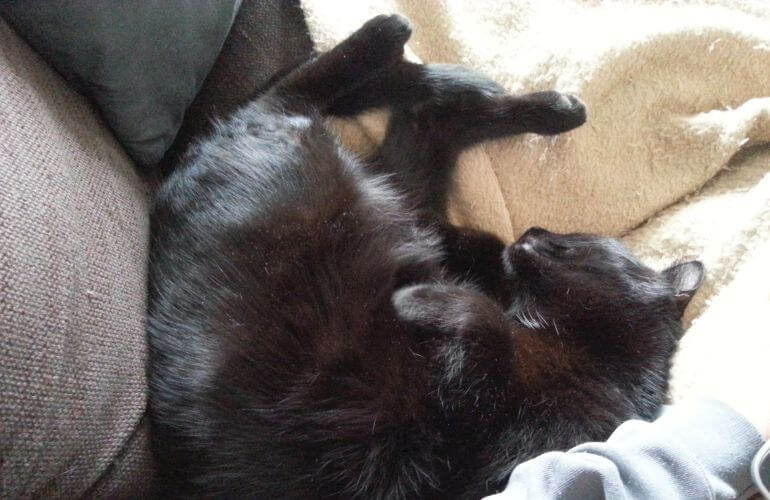
Table of Contents
Typical symptoms of posioning
It’s a different issue if a cat continues drooling when you stop stroking it or if it suddenly starts drooling excessively and doesn’t stop. Similarly, if your cat is drooling and lethargic or drooling and vomitting, you should take action.
In such cases you can’t avoid taking your cat to the veterinarian. Typical symptoms of poisoning apart from drooling are vomitting and diarrhea. (This is true for cats just as it is for humans.) Cats can seem dazed, groggy or lethargic, tremble or show signs of paralysis. I think it’s clear that this calls for professional help.
Cats might poison themselves by chewing on toxic plants, licking detergents or eating things that are entirely harmless to humans, like chocolate. If your cat shows signs of poisoning, take it to the vet as soon as possible.
Typical symptoms of teeth issues
The most common teeth problems affecting cats are FORL (feline odontoclastic resorptive lesions) and gingivitis or stomatitis. Both cause excessive saliva in cats. Additionally to excessive salivation, cats will show symptoms relating to food:
- Refusing to eat
The cat will refuse to eat or eat very little, as eating causes pain and discomfort because of hurting teeth. - Strange chewing behavior
The cat will tilt its head sideways when eating or show unusual behavior with its tongue or drop food from its mouth when eating. - Attacking food bowl or hissing at food
The cat is hissing at its food or attacking its food bowl, as it makes a connection between the food and the pain experienced when eating it. - Bad breath
If you notice such behavior in your cats, it’s definitely worth it going to the vet to help ease your cat’s pain. Inflammation is also a burden on the immune system, so don’t take it lightly. If you’ve ever experienced tooth ache yourself, you can imagine what the animal is going through and why you must not wait too long to get your animal the help it needs.
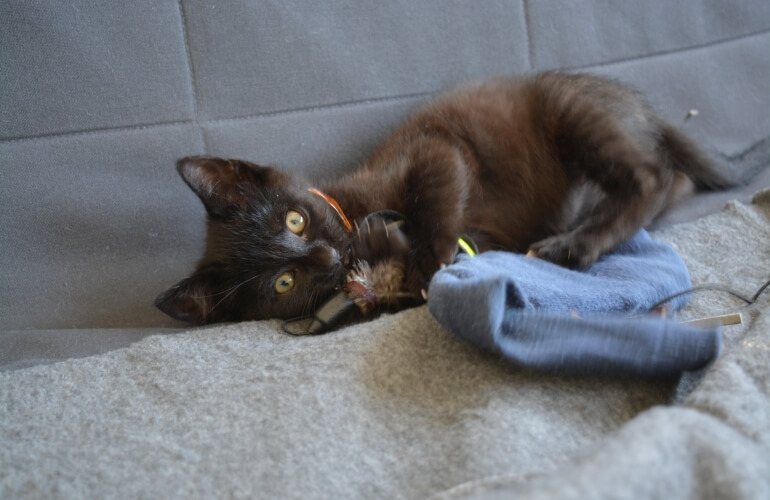
Typical symptoms of foreign objects
If your cat ingests a foreign object it can’t get rid of anymore, there are various other symptoms other than drooling. Maybe you see something hanging from its mouth, a piece of string maybe. As tempting as it may be: If a cat swallowed part of a string, DO NOT pull the other end to try and get it out! There’s no telling what damage you can cause in the cat’s intestines. Take it to the vet ASAP.
Other symptoms of foreign objects:
- Vomitting: The cat will vomit once or several times as its body attempts to get rid of the foreign object. (Vomitting doesn’t automatically mean it has to be a foreign object, though. See also: Why do cats throw up?.)
- Lethargy: The cat becomes lethargic, doesn’t run around anymore and seems generally apathetic.
- Constipation: The cat doesn’t poop into the cat litter anymore.
This could be a sign of an intenstinal obstruction so your cat needs the help of a vet. The vet will x-ray the cat to find out if anything is stuck inside and how it can be removed. If it’s in a cat’s stomach, the vet might be able to put your cat under and remove it endoscopically. If it’s already in the intestine, an operation might be necessary.
Typical symptoms of a content cat
For completeness’ sake, let’s look at the “symptoms” of a happy cat. Next to drooling while being stroked, you might also notice:
- Content purring
- Loving glances with eyes that are half closed
- “Kneading” with the front paws
So if your cat is drooling but acting normal, it might just be contentment. I hope for all of you that that’s actually the reason why your cat is drooling! With us, it’s only ever Wrex who starts drooling when he’s happy, never Garrus, and he only does it sporadically. But it’s easy to forgive them for drooling all over you when you realize they only do it because they love you.
Finally, let me briefly mention catnip and valerian. They are available as little pouches for cats and many cats react to it like a drug and start drooling a lot. In my opinion, this is part of the “content cat” category and it shouldn’t worry you, as the drooling immediately stops when you take the catnip or valerian away.
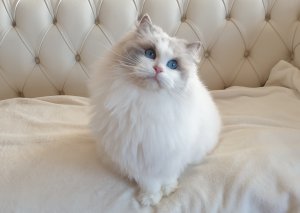
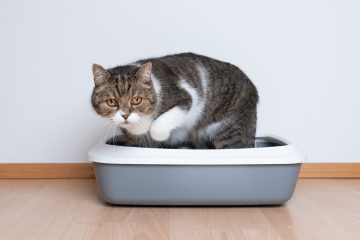
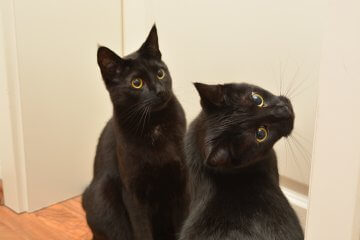
1 Comment
A short guide for clicker-training your cats – Balcony Cats · September 27, 2020 at 2:04 pm
[…] Also interesting: Why do cats drool? […]